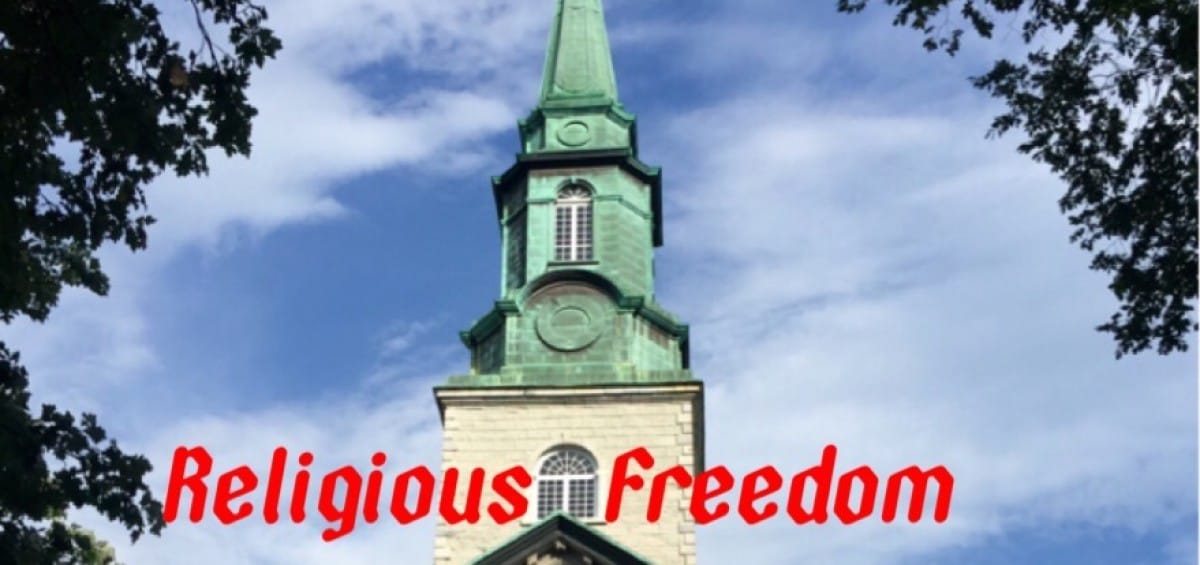From its earliest colonization, America has been the standard bearer of religious freedom. French Protestants fleeing religious persecution established a Huguenot colony at Fort Caroline (Florida) in 1564, followed by the Pilgrims and Puritans colonizing New England. Roger Williams founded Rhode Island in 1636, which rapidly became a haven for Quakers, Jews, and other “dissenters” who refused to compromise their religious convictions. Americans have enjoyed a degree of religious liberty otherwise unknown in world history.
Today, however, religious persecution is advancing and the right of individuals to practice their beliefs is under attack in our nation. A decline in respect for religious viewpoints is inciting social and political intolerance for religious people and institutions. Aggressive regulations require individuals to perform health care procedures or dispense drugs that violate their religious convictions. Judges have stripped our public square of religious monuments and symbols. Lawsuits hostile to religion have banned prayer in schools and other public venues. Still, activists are not content with expunging all evidence of God from public view, they also want to restrict religious people from exercising their beliefs in everyday life.
Courts are taking an extremely narrow view of our First Amendment rights, interpreting religious freedom as merely a right to attend worship services, but not to exercise religious principles seven days a week in your own business or on your own property. This threat has been heightened by LGBT (lesbian, gay, bisexual and transgender) activists who believe tolerance is not enough, forcing unwilling bakers, florists and photographers to celebrate with them and charities and religious schools to follow their script. Adoption agencies are closing their doors and religious universities risk losing accreditation and student loans.
The Constitutional right of free religious exercise extends beyond attending church. Religious leader Robert D. Hales outlines four cornerstones of religious freedom that must be protected:
1. Freedom to believe—to embrace personal, deeply held religious beliefs without persecution or attack.
2. Freedom to worship—to assemble together with others of similar faith and peacefully worship God.
3. Freedom of expression—to share your faith and moral convictions with others.
4. Freedom to practice—to live religious convictions, not just in the home and chapel, but in all areas of life.
With these freedoms come also responsibilities. Religious liberty should never be used to endanger public health and safety or discriminate against others. True religion will always lift—fostering love, civility and compassion, even for those with differing viewpoints.
People of all faiths should join in defending the free exercise of religion, protecting our rights to believe, to worship, to share, and to live in accordance with our moral convictions.
In the words of Ronald Reagan: “To those who cite the First Amendment as reason for excluding God from more and more of our institutions and everyday life, may I just say: The First Amendment of the Constitution was not written to protect the people of this country from religious values; it was written to protect religious values from government tyranny.”
6


Leave a Comment